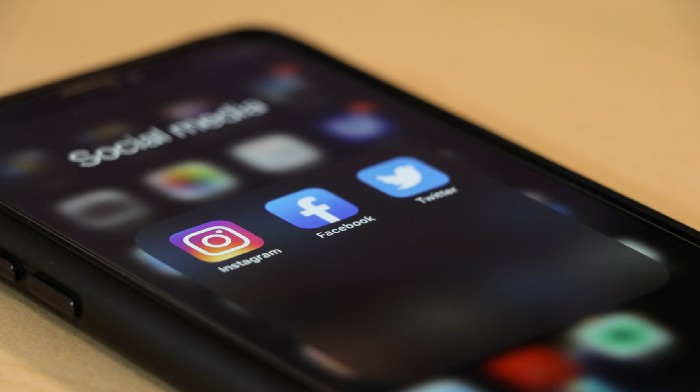
Five irreplaceable tools for growth
This way of thinking inspires innovation and creativity

In everything we do there is always a chance that we will fail. The late Stella Adler, a fantastic acting coach, said, “Grown-ups take the life out of things. It’s better to make things up, to use the imagination, than to kill them.” I couldn’t agree more.
“Don’t be afraid to pursue your goals — even your dreams! But know that there is no shortcut to excellence and competence. Education is the difference between wishing you could help other people and being able to help them.”
– Russell M. Nelson
Jim Carrey, an American-Canadian actor, gave a commencement speech at the Maharishi University of Management in which he told the audience that he was inspired to follow his dreams by his Dad. Carrey says, “So many of us choose our path out of fear disguised as practicality — what we really want seems impossibly out of reach and ridiculous to expect, so we never dare to ask the universe for it.” Carrey says that he is proof that we can ask the universe for it.
Armed with this big idea, this article aims to embrace possibility and share four strategies for managing fear, to give us a fuller, more rewarding life:
Analyse all potential outcomes.
Analysing potential outcomes can help you to avoid making a quick decision out of desperation. Give yourself enough time to reflect to ensure that you aren’t selecting a ‘quick-fix’ solution instead of taking time to find a more lasting solution. Look at two to three workable alternatives that take method and potential as the considerations. More than one workable alternative frees you from becoming attached to a favorite option and seeing too narrowly. In my experience, the terrain always shifts, and as new information arises your flexibility will enhance your ability to take advantage of emerging possibilities. Reduce exposure by making time your ally. If you keep your options open as long as they are viable, you gain even more flexibility. One huge mistake most people make is absorbing the advice popular thought leaders offer in regard to understanding the external aspects of decision-making and problem-solving while ignoring the central role that our own mindsets play in the process. According to Carol Dweck, Stanford psychologist, as a rule, people either want to avoid negative results (fixed mindset) or they want to pursue positive outcomes (growth mindset). The way you think influences your outlook and outcome.
Learn to think more positively
Optimists seem to have different ways of dealing with the world that sets them apart from the average.
First, they keep their minds on what they want, and keep looking for ways to get it. They are clear about goals and they are confident that they will accomplish them, sooner or later.
Second, optimists look for the good in every problem or difficulty. When things go wrong, as they often do, they say, ‘That’s good!’ and then set about finding something positive about the situation.
What we know is that if you are looking for something good or beneficial in a person or situation, you will always find it.
“The pessimist sees difficulty in every opportunity. The optimist sees the opportunity in every difficulty.
– Winston Churchill
Look at worst-case scenarios
Jim Rohn, American businessman, author and motivational speaker, says we must all wage an intense, lifelong battle against the constant downward pull. Jack Welch, the legendary former CEO of General Electric, once offered a sound piece of advice to aspiring entrepreneurs. After he spoke at the Entrepreneur’s Organisation, the largest global network of its kind, somebody asked Welch what his number one piece of advice to an entrepreneur would be. Jack’s response? “Panic faster.” Entrepreneurs can get so busy reading their own press that they don’t see what’s really happening around them and may not react to red flags soon enough.
The PEEL framework is a unique system that we teach and train at our Cost Of Success training events. The framework is utilised by many industries across many applications. We use it to create a roadmap to inspire confidence and set a course in the direction of success in any endeavor. The system includes four main stages: Plan, Execute, Engage and Learn.
Plan
My Mom used to say, “Man’s plans and God laughs.” Of course, she was right, even when we lay out the best plans, life can throw us a curveball. Planning is crucial to your success even when things don’t go as you would like them to. Here are the key things you need to know about planning.
Your plan needs a home: Where does/will your plan live? E.g. On your phone, chalkboard or computer?
Write your plan down: Get your ideas out of your head. Write it down and revise where required.
It’s alive Igor! A plan is a living thing. The processes highlighted above should be systematic and sporadic. Plan how regularly you will review your plan and journal that time while remaining flexible to on-the-spot adjustments.
The name of the game is massive action: A plan is not just wishing. There are plenty of differences between high achievers and everyone else, but I think there is one that really solidifies the gap between the two. That one difference is that high achievers don’t live on ‘Someday Island,’ they are living on ‘Now Island.’ High achievers are fully creating their own circumstances in life rather than going along with what has been presented to them.
One of the best decisions you can make in both your personal and professional lives is to learn how not to be afraid of failure. Will you fail? Yes. Can you manage failure and find the positive lesson in that experience? Yes. Is anyone capable of developing a plan, engaging and learning? Of course! Your life is worth more than living in the past or pining over broken dreams and wishes. Take massive action and go after what you want now.
Eliot Kelly is recognised as a serial Entrepreneur, and has been featured on CNN, BBC Three’s Be Your Own Boss and an extensive list of magazines and articles. His four books have been translated in over 7 languages and are sold in 29 countries, recently being shortlisted for Best Self-Help and Best Advice Books 2019 by The Author Academy. He is regarded as a top Sales, Business and Leadership Management Coach who creates opportunities for his success partner’s through financial literacy and life skills training. He is also a Professional Speaker and continues to inspire present and future entrepreneurs around the world. You Know More Than You Think You Do releases this Christmas! Pre-Order Today.

This way of thinking inspires innovation and creativity

Nobody knew who Elon Musk was before he started making millions. The world came to know him once he began winning. For example, did you know that PayPal, one of Elon Musk’s most successful companies, was voted as the worst business concept of the year?

Before spending money on your business, you will want to validate your products or services. You can do this in several ways including online and offline sampling and testing and through research. You can also validate your product/service by using Google Trends, Quora and Google Reader for example, to determine the popularity of the keywords associated with your business idea.

Steve Jobs once famously said, and I agree to an extent, that, “the only way to do great work is to love what you do.” Jobs continued that, “if you haven’t found it yet, keep looking. Don’t settle.” The part of Job’s quote that resonates with me the most is that I believe passion is what switches an individual from dormant and passive to activated. Critics of Job’s statement, get hung up on whether an individual can become great at something he or she does not necessarily love. To this argument, I have left mental space that if someone becomes great or is great at something, there is something they can love or do love about that task, be it direct or indirect. Instead of getting lost in the noise of the arguments surrounding the quote and the individual biases towards the man himself, I took the message to mean that when we show up, an entirely new world is made available to us.

In 2001, a skinny kid named Takeru Kobayashi devoured fifty hot dogs in 12 minutes — double the previous world record. The guy weighed a whopping 131 pounds. Yet he took down competitors three time his size and changed the sport forever.
How did he do it?
He did not just stuff hot dogs into his mouth faster than everyone else. Not even close. His massive success came from thinking strategically and going beyond the obvious. …

Unhealthy competition puts a disproportional amount of emphasis on the outcome, rather than valuing the process or the journey of success.
“Look to your left, look to your right: one of you won’t be here next year.” This intimidating line was immortalised as a greeting for incoming students at Harvard Law School in the classic movie, The Paper Chase. The message — hard work is needed to be here. The potential misinterpretation — your success occurs when others fail or that in a competition, others must lose if you are to win, and so it is natural to withhold…

This way of thinking inspires innovation and creativity

Nobody knew who Elon Musk was before he started making millions. The world came to know him once he began winning. For example, did you know that PayPal, one of Elon Musk’s most successful companies, was voted as the worst business concept of the year?

Before spending money on your business, you will want to validate your products or services. You can do this in several ways including online and offline sampling and testing and through research. You can also validate your product/service by using Google Trends, Quora and Google Reader for example, to determine the popularity of the keywords associated with your business idea.

Steve Jobs once famously said, and I agree to an extent, that, “the only way to do great work is to love what you do.” Jobs continued that, “if you haven’t found it yet, keep looking. Don’t settle.” The part of Job’s quote that resonates with me the most is that I believe passion is what switches an individual from dormant and passive to activated. Critics of Job’s statement, get hung up on whether an individual can become great at something he or she does not necessarily love. To this argument, I have left mental space that if someone becomes great or is great at something, there is something they can love or do love about that task, be it direct or indirect. Instead of getting lost in the noise of the arguments surrounding the quote and the individual biases towards the man himself, I took the message to mean that when we show up, an entirely new world is made available to us.

In 2001, a skinny kid named Takeru Kobayashi devoured fifty hot dogs in 12 minutes — double the previous world record. The guy weighed a whopping 131 pounds. Yet he took down competitors three time his size and changed the sport forever.
How did he do it?
He did not just stuff hot dogs into his mouth faster than everyone else. Not even close. His massive success came from thinking strategically and going beyond the obvious. …

Unhealthy competition puts a disproportional amount of emphasis on the outcome, rather than valuing the process or the journey of success.
“Look to your left, look to your right: one of you won’t be here next year.” This intimidating line was immortalised as a greeting for incoming students at Harvard Law School in the classic movie, The Paper Chase. The message — hard work is needed to be here. The potential misinterpretation — your success occurs when others fail or that in a competition, others must lose if you are to win, and so it is natural to withhold…
Will be used in accordance with our Privacy Policy